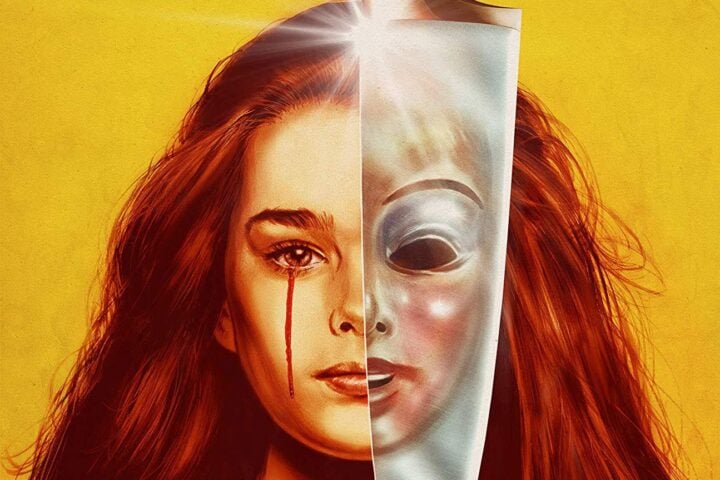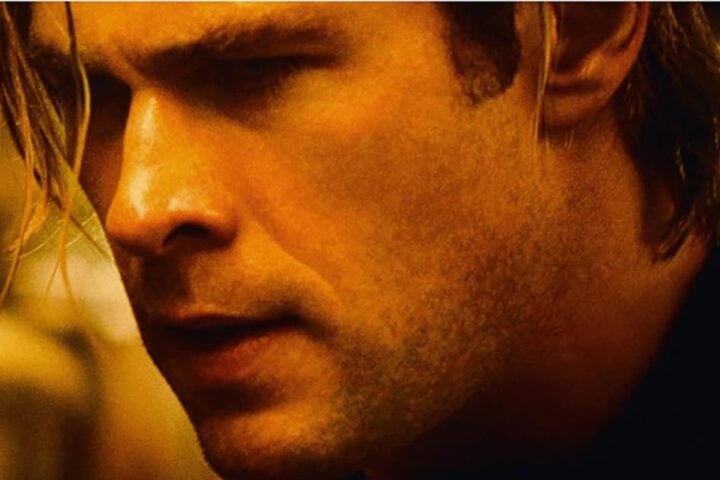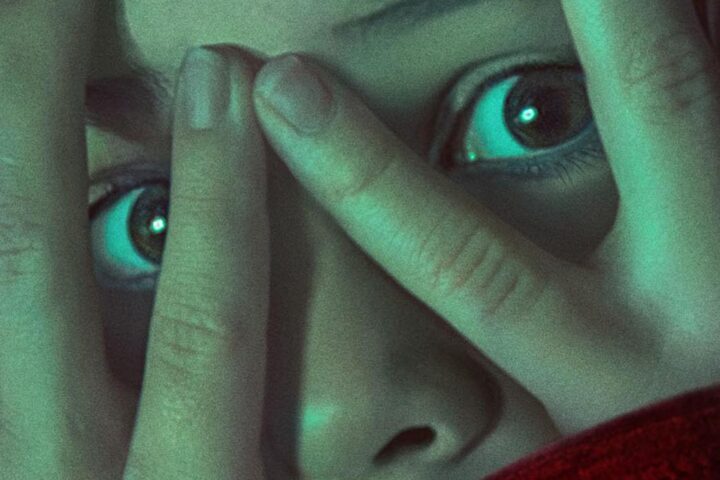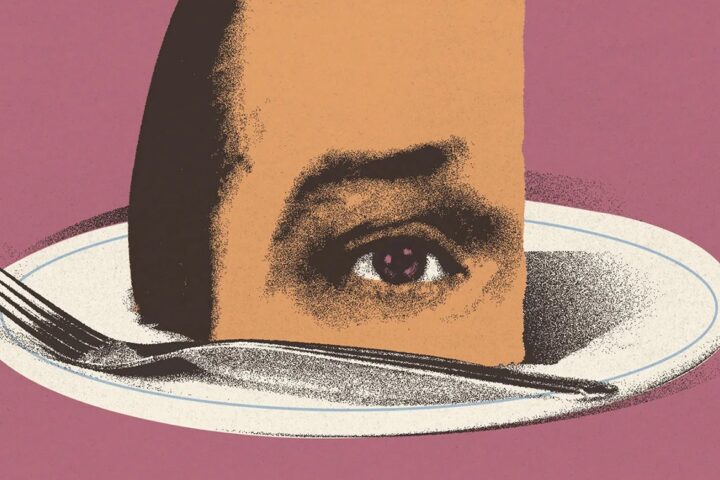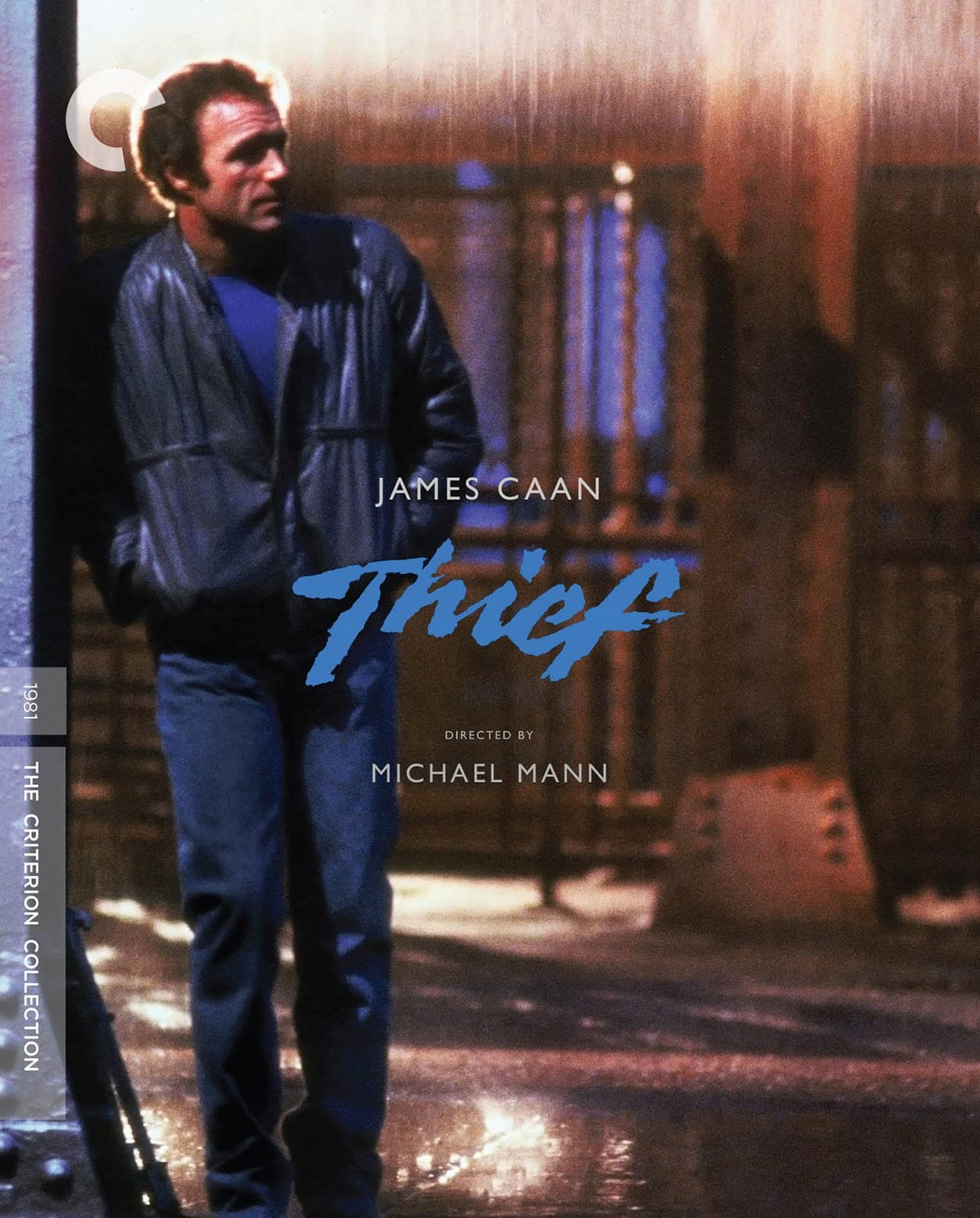 There’s a sentimental heart to Michael Mann’s films, as much as his fans might not like to hear about it. Run a movie like Heat or Thief alongside the finest crime novels of the same bygone era Mann taps as fuel for his ongoing, elegiac meta-saga on heist men, bag men, and hit men. Run them against key works by Westlake, Chandler, Hammett, or Bezzerides—authors whose heroes and antiheroes are all hard, bad edges. In Mann’s world, sentimentality is front and center, the prize beyond the horizon for the Los Angeles cab driver, the storied Depression-era stickup man, or the Miami vice cop. It’s the reason for some of those mournful stares, those knowing half-smiles that punctuate your Miami Vice, your Public Enemies.
There’s a sentimental heart to Michael Mann’s films, as much as his fans might not like to hear about it. Run a movie like Heat or Thief alongside the finest crime novels of the same bygone era Mann taps as fuel for his ongoing, elegiac meta-saga on heist men, bag men, and hit men. Run them against key works by Westlake, Chandler, Hammett, or Bezzerides—authors whose heroes and antiheroes are all hard, bad edges. In Mann’s world, sentimentality is front and center, the prize beyond the horizon for the Los Angeles cab driver, the storied Depression-era stickup man, or the Miami vice cop. It’s the reason for some of those mournful stares, those knowing half-smiles that punctuate your Miami Vice, your Public Enemies.
At the same time, these stories may also be that of the sentimental dream being crushed, its embers stubbed out by crippling disappointment. Not all of his protagonists make it to the very end of his movies, but if those that hadn’t, had, you can imagine them resuming their lives in dime novels or noir films, post-disappointment, burned clean through, and cauterized.
The Mann story is most often told leading up to the fall, after you subtract the armies of technical advisors: the sweet, idealistic dream coupled with the sour certainty that it’s simply not meant to be. That’s why the final math that resolves Collateral has so much less material value than the conversations between Vincent and Max that make up the film’s core. And it’s the key to Thief, the tale of a man who won’t allow himself the indulgence of hope, and, when he’s reminded of why, he burns everything out of his life short of self-preservation and vengeance.
As if planned backward from its Pyrrhic-tragic conclusion, Thief is never spoiled by any seeming inevitability, confident as we may be that sweet, good things can’t last. The juice, to appropriate a Mann-sourced phrase, isn’t in the action, but in the inaction, in the conversations between principals. You can tick off a half-dozen or more great scenes in Thief before you name one involving a gun; well staged though the scene may be, it’s easy to forget that Urizzi (John Santucci) pinches Frank (James Caan) at the end of a shotgun, but the sergeant’s lines in the interrogation room (“And on dat day, I’m gonna be in dat place!”) and his dirty, contemptuous looks resonate beyond the enclosures of scenes and frames.
Not overtly recalling Robert Bresson’s Pickpocket, Caan’s misfit loner acquires things of no spiritual value in a useless attempt to achieve a personal state of grace. Going by the blueprint of brooding, sentimental tragedy, there’s no place for the crook in an equally crooked world; even though everyone’s on the take, Frank is correctly identified as dangerous because he “doesn’t give a fuck.” His feet to the fire in two major scenes (cops in one, criminals in the other), Frank’s field of vision narrows to the width of a single atom, excluding such distractions as family, his two legit businesses, his underworld connections—everything, finally, but the jacket on his back, 10 fingers and 10 toes, and his piece, still warm from a kill.
Image/Sound
The transfer on this 4K UHD release maximizes the strengths of the 4K restoration that Criterion previously used for its 2014 Blu-ray release of Thief, rendering the film’s metallic color scheme even bolder with HDR boosting and revealing new depths to the black levels. The rare instances of color bleeding that dotted the Blu-ray are absent here. The presentation looks filmic, with even grain, detailed texture, and color balance that’s very well managed. The 5.1 soundtrack is the same used on the previous release, and it remains an enveloping mix, carefully layering deep-background and off-screen sounds beneath crisp dialogue and Tangerine Dream’s electronic score, a pulsing blend of metronomic iciness, disco sleaze, and ambient bliss.
Extras
Criterion ports over all the extras from its earlier Blu-ray, starting with a 1995 commentary track with Michael Mann and James Caan that strikes a good balance between easygoing reminiscence and sharp-eyed analysis. Interviews with Mann, Caan, and Tangerine Dream’s Johannes Schmoelling provide further insight into the making of the film. The booklet essay by critic Nick James provides a broad overview of Mann’s career to that point and explicates how Thief established many of the director’s aesthetic and thematic trademarks.
Overall
This disc’s immaculate A/V presentation of Michael Mann’s feature-length directorial debut obliterates what few flaws marked Criterion’s 2014 Blu-ray.
Since 2001, we've brought you uncompromising, candid takes on the world of film, music, television, video games, theater, and more. Independently owned and operated publications like Slant have been hit hard in recent years, but we’re committed to keeping our content free and accessible—meaning no paywalls or fees.
If you like what we do, please consider subscribing to our Patreon or making a donation.

